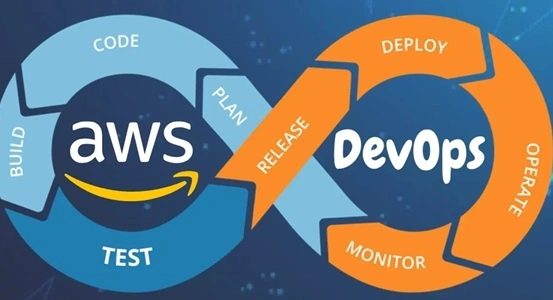The AWS Certified DevOps Engineer – Professional is one of the most respected certifications for professionals working in cloud, automation, and CI/CD. It validates your ability to manage distributed systems, implement DevOps practices, automate processes, and handle complex AWS environments. However, preparing for this certification requires the right strategy, hands-on experience, and consistent practice.
In this article, we will break down a clear, step-by-step approach to help you prepare effectively for the AWS DevOps certification.
1. Understand the Exam Blueprint

Before starting your preparation, study the official AWS exam guide. The certification mainly focuses on:
- SDLC Automation
- Configuration Management & Infrastructure as Code
- Monitoring & Logging
- Incident & Event Response
- High Availability, Fault Tolerance & Disaster Recovery
- Policies & Governance
Understanding these domains helps you build a roadmap and target the right skills.
2. Build Strong Fundamentals with AWS Services
Most exam questions revolve around real-world scenarios. To solve them confidently, you must understand the core AWS services used in DevOps, such as:
- EC2, VPC, ELB, Auto Scaling
- Lambda & Serverless stack
- CloudFormation & CDK
- CodeCommit, CodeBuild, CodeDeploy, CodePipeline
- CloudWatch, CloudTrail, X-Ray
- IAM, KMS, Secrets Manager
- ECS, EKS, Docker
The more hands-on practice you get, the easier it becomes to answer situation-based questions.
3. Get Hands-on Experience
AWS DevOps certification is not memory-based—it is practical and scenario-driven. You should practice by building real projects, such as:
- Creating a CI/CD pipeline using CodePipeline + CodeBuild
- Deploying a containerized application using ECS or EKS
- Writing Infrastructure as Code using CloudFormation
- Setting up CloudWatch alarms and dashboards
- Implementing blue-green or rolling deployments
Use a free-tier AWS account to experiment and break things—this is the best way to learn.
4. Use Official AWS Resources
AWS provides high-quality learning materials:
AWS Whitepapers
Important documents include:
- DevOps on AWS
- Security Best Practices
- Well-Architected Framework
- Fault Tolerance and High Availability
AWS Skill Builder
The “Exam Readiness: AWS Certified DevOps Engineer – Professional” course is extremely helpful.
AWS Documentation
It provides detailed examples, diagrams, and troubleshooting steps. Reading documentation improves your understanding of how services behave in real-world settings.
5. Use High-Quality Online Courses
Platforms like Udemy, Coursera, LinkedIn Learning, and A Cloud Guru offer structured preparation courses. Some of the most recommended ones include:
- Stephane Maarek’s AWS DevOps Engineer course
- A Cloud Guru DevOps Engineer Professional course
These courses include labs, quizzes, and real exam scenarios.
6. Practice with Mock Tests
Mock exams are the most important part of preparation. They help you:
- Understand exam difficulty
- Improve time management
- Identify weak areas
- Build confidence
Use mock tests from:
- Tutorials Dojo
- Whizlabs
- Udemy practice tests
Analyze your mistakes after every mock test and revise those topics thoroughly.
7. Strengthen Your DevOps Knowledge
AWS services alone are not enough. You should also understand:
- CI/CD concepts
- Git workflows
- Docker & Kubernetes basics
- Configuration management (Ansible, Chef, Puppet)
- Monitoring, alerting & logging principles
Good DevOps fundamentals make the exam far easier to handle.
8. Focus on Real-World Case Studies
Most exam questions are long, scenario-based, and focus on:
- Reducing deployment time
- Improving reliability
- Automating infrastructure
- Enhancing security
- Optimizing cost
Reading AWS architecture blogs and case studies helps you understand how companies solve these problems using DevOps practices.
9. Revise Regularly and Create Notes
Make short notes for:
- Deployment strategies
- Key configurations
- CloudFormation templates
- CI/CD flows
- Security best practices
Revising these notes in the last week before the exam can significantly boost your memory and accuracy.
10. Final 7-Day Strategy
Here’s a quick revision plan:
- Day 1–2: Revisit core AWS services and practice labs
- Day 3: Take a full-length mock test
- Day 4–5: Revise weak areas and review whitepapers
- Day 6: Attempt one more mock test
- Day 7: Relax, revise your notes, and stay confident
Conclusion
Preparing for the AWS DevOps certification requires a combination of theoretical knowledge, hands-on experience, and strong DevOps concepts. With the right roadmap—understanding AWS services, building real projects, focusing on mock tests, and revising consistently—you can confidently clear the exam and boost your career in cloud and DevOps engineering.